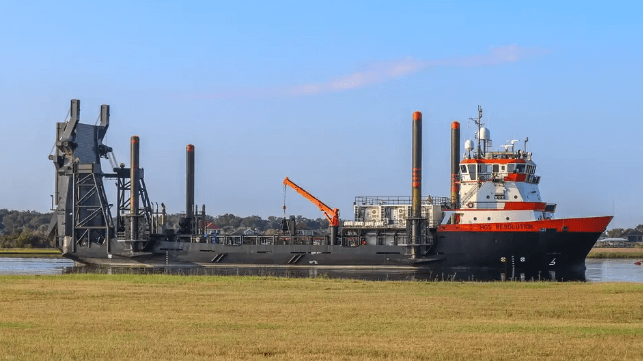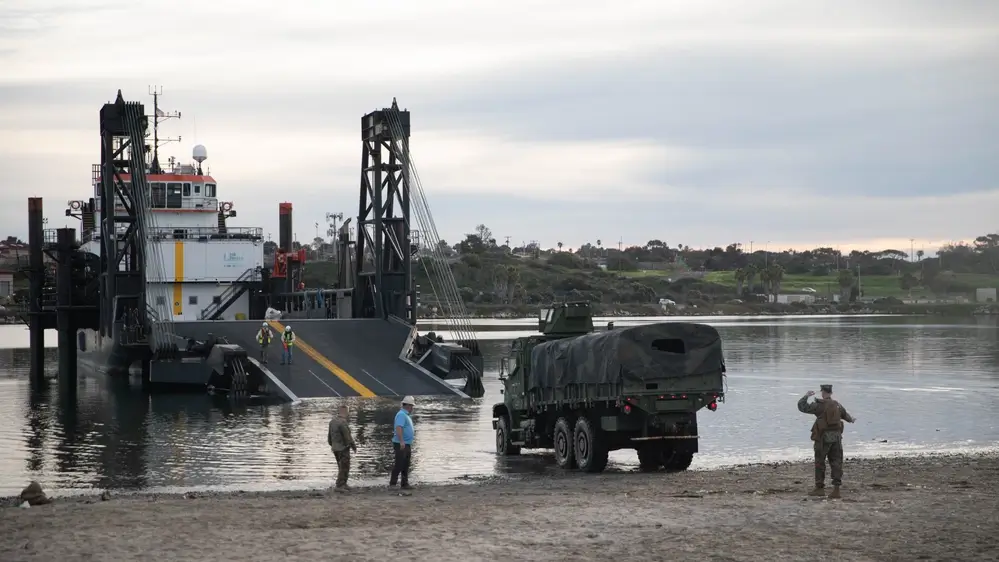The Marine Corps Has Turned an Offshore Vessel Into a Landing Ship

In a series of experiments at Camp Pendleton, the U.S. Marine Corps is testing out the capabilities of its novel new landing vessel, a heavily-modified OSV from the Gulf oil patch.
The Marine Corps has chartered and converted the 20-year-old offshore supply vessel HOS Resolution to try out a rarely-seen concept: stern-first beach landings. The idea has potential advantages, particularly in seakeeping, since the vessel gets to keep a conventional bow. Last year, a shipyard in Louisiana refitted HOS Resolution with a folding stern ramp, two ramp support towers and four spuds for stationkeeping. When combined with heavy skegs, CPPs and a DP2 system, the vessel may well be the only member of a new class.
 Courtesy USMC
Courtesy USMC
Last weekend, teams from the U.S. Army Combat Capabilities Development Command and Marine Corps War Fighting Lab put the heavily-modified OSV through her paces. In an inner harbor, with calm conditions, the vessel's crew deployed the stern ramp and tested out loading and unloading military vehicles - both directly onto the beach and through the water. The team also tried launching a heavy unmanned aircraft from the deck of the HOS Resolution to simulate an aerial payload delivery to shore.
HOS Resolution will deploy to Japan after testing in California and Hawaii, and two more OSV-based testbeds are coming soon, according to USNI.

that matters most
Get the latest maritime news delivered to your inbox daily.
Trials with the new design will inform the service's plans for its future shore-to-shore connector, the Landing Ship Medium, which it is co-developing with the U.S. Navy. The LSM is key to the USMC's strategy to disperse small combat groups of Marines on far-flung islands in the Pacific, where they could target enemy warships and aircraft.
LSM is one of several novel strategies that the Marine Corps is pursuing to solve its logistics problems in the Western Pacific. The service's top R&D officer said last year that its researchers are developing an autonomous, low-profile supply boat designed around Colombian drug-running semisubmersibles.
